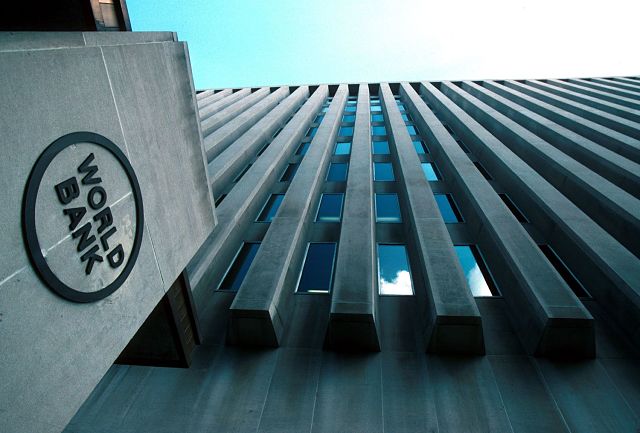 The World Bank says it will invest over $5 billion over the next five years including in Ethiopia to help improve "livelihoods as countries recover from the COVID-19 pandemic." The money will fund interventions in agriculture, water, community development, food security, resilient infrastructure, landscape restoration, and renewable energy, World Bank Group President David Malpass said. The countries are Burkina Faso, Chad, Djibouti, Ethiopia, Eritrea, Mali, Mauritania, Niger, Nigeria, Senegal and Sudan. (Getty Images)
The World Bank says it will invest over $5 billion over the next five years including in Ethiopia to help improve "livelihoods as countries recover from the COVID-19 pandemic." The money will fund interventions in agriculture, water, community development, food security, resilient infrastructure, landscape restoration, and renewable energy, World Bank Group President David Malpass said. The countries are Burkina Faso, Chad, Djibouti, Ethiopia, Eritrea, Mali, Mauritania, Niger, Nigeria, Senegal and Sudan. (Getty Images)
Reuters
World Bank to invest $5 bln in 11 African countries
WASHINGTON (Reuters) – The World Bank said it would invest over $5 billion over the next five years to help restore degraded landscapes, improve agriculture productivity, and promote livelihoods in 11 African countries as they recover from the COVID-19 pandemic.
World Bank Group President David Malpass said the investment would help improve livelihoods as those countries recovered from the outbreak and dealt with the impact of biodiversity loss and climate change through 2025.
Malpass announced the aid at the One Planet Summit, a high-level meeting co-hosted with France and the United Nations that is focused on addressing climate change and biodiversity loss.
The money will fund interventions in agriculture, water, community development, food security, resilient infrastructure, landscape restoration, and renewable energy, Malpass said.
The funds would benefit countries in the Sahel region, Lake Chad and Horn of Africa, the Bank said in a statement. The countries are Burkina Faso, Chad, Djibouti, Ethiopia, Eritrea, Mali, Mauritania, Niger, Nigeria, Senegal and Sudan.
Malpass said the World Bank’s PROGREEN global fund dedicated to boosting countries’ efforts to address landscape degradation would add $14.5 million for projects in Burkina Faso, Chad, Mali, Mauritania, and Niger.
He said the Sahel region, in particular, was one of the most vulnerable to desertification and land degradation, with temperature increases projected to be 1.5 times faster than the global average. Eighty percent of farmlands in the region were degraded and about 30 million people food insecure, he said.
Malpass said investing in restoring the Sahel’s landscapes was crucial to mitigate these trends. COVID-19 was exacerbating poverty levels, with extreme poverty rates in the Sahel expected to increase for the first time in decades, by 1.5 percentage points on average in 2020.
This translated into 1.23 million additional people who were extremely poor in the Sahel region.
—
Join the conversation on Twitter and Facebook.

























